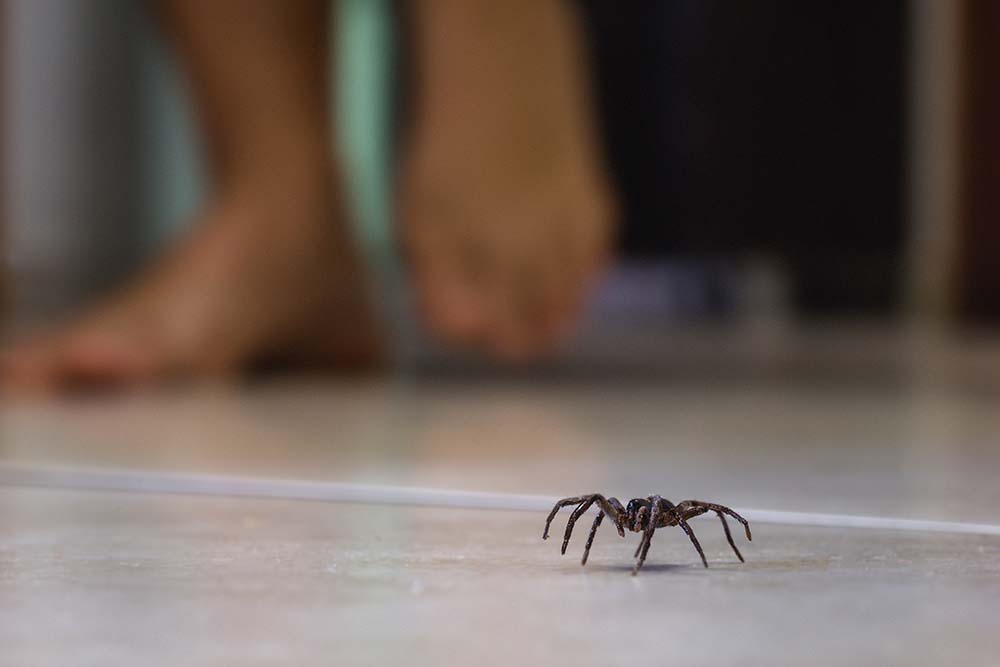Spider Season: Identifying Common House Spiders and Reducing Infestations
As the weather cools and leaves begin to fall, many homeowners notice an increase in eight-legged visitors inside their homes. It’s officially spider season! While most house spiders are harmless, their presence can be unsettling for some.
At Home Run Pest & Termite Control, we understand the need for a comfortable and pest-free home. In this blog post, we’ll explore common house spiders, why they become more prevalent in the fall, and effective strategies to reduce infestations.

Common House Spiders
While there are thousands of spider species, only a few commonly venture indoors. Here are some frequent houseguests:
- American House Spider (Parasteatoda tepidariorum): This is perhaps the most common house spider. It’s typically brown or gray with a rounded abdomen and builds messy, tangled webs in corners, basements, and garages.
- Wolf Spider (Lycosidae family): Larger and hairier than house spiders, wolf spiders are active hunters and don’t build webs. They may wander indoors in search of prey.
- Cellar Spider (Pholcidae family): Also known as “daddy long-legs,” these spiders have long, thin legs and build loose webs in cellars, basements, and corners.
- Jumping Spider (Salticidae family): These small, active spiders are known for their jumping abilities. They have excellent eyesight and are often found near windows or walls.
Why Fall is Spider Season
Several factors contribute to increased spider activity in the fall:
- Mating Season: Many spider species reach maturity in the fall and actively seek mates, leading them to wander indoors.
- Seeking Shelter: As temperatures drop, spiders look for warm, sheltered places to overwinter, often finding their way into homes.
- Prey Availability: Insects also seek shelter indoors during the fall, providing a readily available food source for spiders.
Reducing Spider Infestations
While most house spiders are harmless, you can take steps to reduce their presence:
- Seal Entry Points: Inspect your home’s exterior for cracks, gaps, and holes. Seal these entry points with caulk or weatherstripping to prevent spiders from entering.
- Reduce Clutter: Spiders love to hide in cluttered areas. Keep your home clean and organized, especially in basements, attics, and storage spaces.
- Remove Webs: Regularly remove spider webs with a vacuum or broom to discourage spiders from establishing themselves.
- Outdoor Lighting: Reduce outdoor lighting near entryways, as this can attract insects that spiders prey on.
- Natural Repellents: Certain scents, like peppermint, citrus, and eucalyptus, are believed to repel spiders. Use essential oils or candles with these scents around your home.
When to Call a Professional
If you’re dealing with a significant spider infestation or have concerns about venomous spiders, it’s best to contact a professional pest control company like Home Run Pest & Termite Control. We have the expertise and tools to effectively eliminate spiders and prevent their return.
While spiders play a beneficial role in controlling other insects, their presence inside your home can be unsettling. By understanding their habits and taking preventative measures, you can reduce spider infestations and enjoy a more comfortable living space. If you need assistance with spider control, don’t hesitate to contact Home Run Pest & Termite Control. Our experienced professionals will provide the effective solutions you need to keep your home spider-free.
